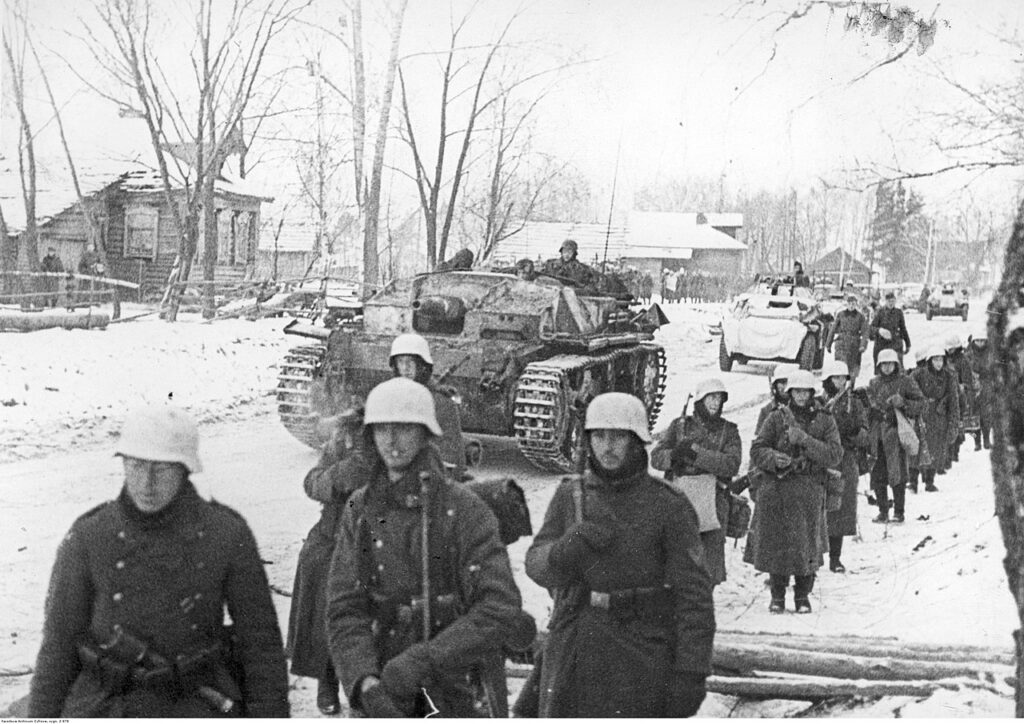On 5 December 1991, Ukrainian voters decided to secede from the Soviet Union and Leonid Kravchuk became Ukraine’s first president.
On 5 December 1941, the Russians launched their counteroffensive against the Germans in the Battle of Moscow. The plan had been hatched by Generals Georgy Zhukov and Aleksandr Vasilevsky. The European winter was the coldest of the century. In the words of the German general Guderain:
“the offensive on Moscow failed … We underestimated the enemy’s strength, as well as his size and climate. Fortunately, I stopped my troops on 5 December, otherwise the catastrophe would be unavoidable.”
Vasilevsky died on 5 December 1977.
On 5 December 1936, the second and on its face most democratic of the Soviet Union’s constitutions came into effect. It was written by a special commission with Joseph Stalin as chair. One member
was Lazar Kaganovich, who in 2010 was posthumously found guilty by Kyiv Appellate Court of genocide against Ukrainians during the 1932-1933 Holodomor famine.
On 5 December 1919, five Ukrainian Bolsheviks were executed by the Makhnovists during the Ukranian War of Independence. The Makhnovists were anarcho-communists who saw off the White movement only to come into conflict with the Bolsheviks. The Bolsheviks survived and were able to seize power weeks later. The Bolshevised country was admitted to the Soviet Union two years later.
On 5 December 1803, the Russian poet Fyodor Tyutchev was born. He wrote:
Who would grasp Russia with the mind?
For her no yardstick was created:
Her soul is of a special kind,
By faith alone appreciated.
The English language website Russia Beyond is sponsored by the Russian national broadcaster. It records:
This short poem, which Tyutchev penned in 1866, is one that every Russian knows by heart. It is hard to imagine a more comprehensive and clear definition of the essence of Russia or a more accurate key to the mysterious Russian soul. There is a widely held opinion that Russia does not belong either to Europe or Asia and that it has its own path.
Which is an excellent way to observe that the forerunner of what we call Russia, the Grand Duchy of Moscow, experienced both sides on its own path. It was, on the European side of things, first ruled by a branch of the dynasty which ran Kiev Rus. And it was, on the Asian side of things, under the occasional rule of the Golden Horde. Emir Edigu attempted to reassert that rule and claim tribute unpaid for decades. He reached and burnt the surrounds of Moscow but failed to take it.
We of the west think of Moscow winters defeating western invaders such as Napoleon and Hitler. The descendants of Genghis Khan faced such winters too. The Horde’s failure occurred on 5 December 1408.
